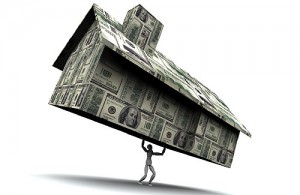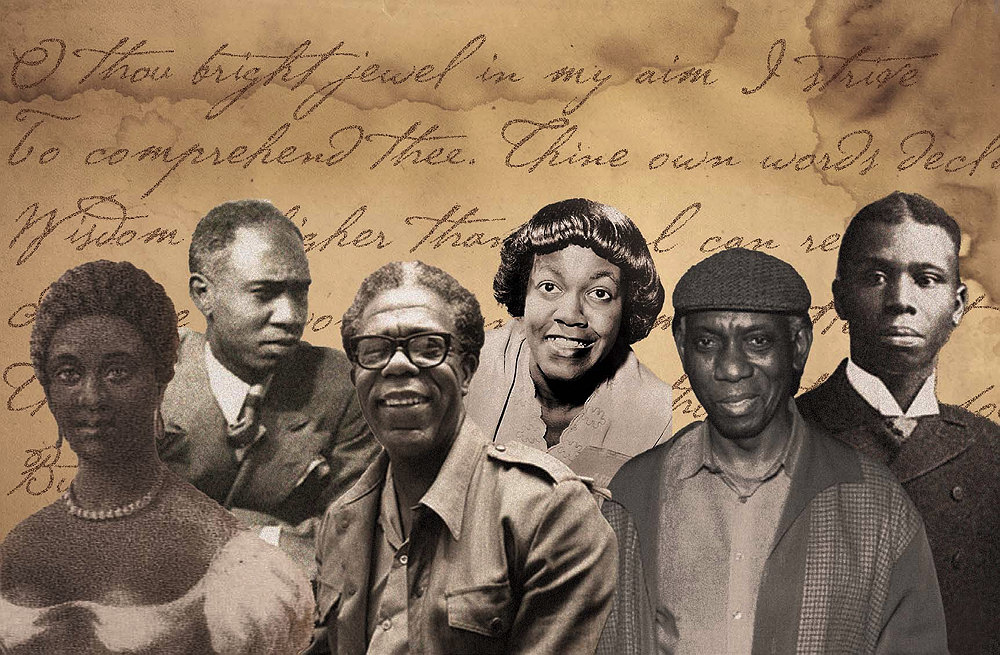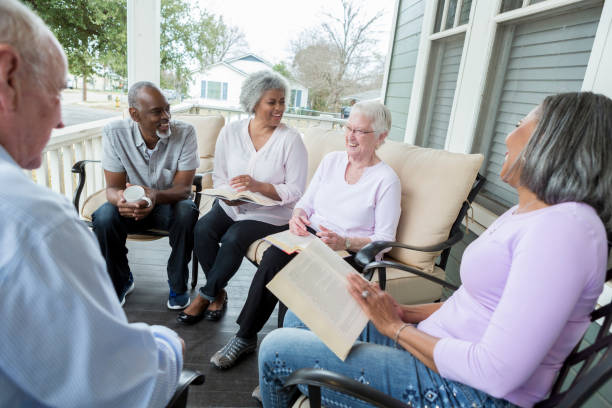(ThyBlackMan.com) As the nation continues to grapple with a weak housing market, policymakers are seeking safeguards to ensure that American families will never again face such massive foreclosures and billion-dollar losses of wealth. Some have suggested that the best guarantee against future housing crises would be to require down payment for many home purchases to be 10 or even 20 percent.
But after the Center for Community Capital and the Center for Responsible Lending analyzed nearly 20 million loans originated between 2000 and 2008, researchers found that while high down payment requirements might lower foreclosure rates somewhat, these larger down payment requirements would prevent a much greater share of credit-worthy borrowers from getting lower-cost mortgages. If mandated down payments were at 20 percent of a home’s purchase price, that requirement alone would exclude 75 percent of qualified  African-American and 70 percent of Latino borrowers from lower-priced loans, or from becoming homeowners altogether.
African-American and 70 percent of Latino borrowers from lower-priced loans, or from becoming homeowners altogether.
By CRL’s estimates, the average American household earning $50,000 a year would need more than 10 years to save for a 10 percent down payment on a home. For black households, averaging $32,000 a year, the years needed to save would rise to more than 14 years to save for that same down payment.
The new research also found that it was dangerous loan features and the lack of mortgage underwriting standards – not low down payments – that caused the current housing crisis. Lenders that never considered a borrower’s ability to repay a loan, broker kickbacks for steering mortgage applicants into high-cost loans, and prepayment penalties were far more responsible for the foreclosure tsunami than down payments.
The Dodd-Frank Financial Reform Act already eliminated many of these risky loan terms.
If the American Dream is to be real for this and future generations, it must be accessible — especially for those who have historically been locked out homeownership.
Right now, without government-mandated high-down payments, minority homeownership already lags behind that of white families.
Last year in a related study, the Harvard-based Joint Center for Housing Studies also found that low wealth levels make down payments a major barrier to homeownership especially for minorities. “At last measure in 2007” cited the Harvard report, “the median minority renter had only $300 in cash savings and $2,700 in net worth, while the median white renter had roughly three times those amounts.”
No one wants or needs another housing crisis. So government has an important role to play in developing safeguards against the billion-dollar losses of recent years. That would be a good thing.
But we also know that government policies work best when they level the playing field and expand opportunities for everyone. Working families who pay their bills on time and keep debt to modest levels should not have to wait 10 years or longer just to amass down payments for modest homes. High, government-mandated down payments would do just that.
Since the mortgage loan rates dropped a few months ago, hitting its lowest in so many years, a lot of citizens are still aiming to get the best housing deals in the US. This seems to be a good sign for the housing economy, although we might just need to steer clear of frauds and other fishy loan activites.
If as a country we believe in the pride of homeownership and the ability for every family to own a home, let government reforms reflect that basic value. A balance between fair access to homeownership and safety in mortgage markets would help everyone – consumers of all colors and businesses alike.
Staff Writer; Charlene Crowell




















Do you recall the Bush $700 billion stimulus package ie. TARP “Troubled Asset Relief Program” to remove worthless paper off the balance sheets of banks? All things real estate is rooted in the mortgage industry. Before a buyer can even attempt to use their mortgage loan to purchase a home proper assessment of the subject property must be done or the pertinent parties ie. buyer and lender will have to assume the seller’s asking price reflects the home’s true value which has become a standard business practice. Even if the lender requires an appraisal of the property the seller’s asking price is given to the appraiser who will almost always come up with a value in line with the seller’s asking price.
The Golden Rule is that when you assume you make an ass out of you and me which is what you and so many lenders do, assume that the seller’s asking price reflects the true value of the home. For example, buyer purchases a home at the seller’s asking price of $100k. Lender approves the loan because buyer has a low debt to income ratio but requires a 10 percent down payment to minimize the probability that buyer will default on the loan because of buyer’s assumed 10 percent equity interest in the property even though the home’s true value is $50k which is very common in a commission driven industry.
Along comes the biggest economic crisis since the Great Depression revealing all this worthless paper wiping out phantom equity resulting in the biggest bank bailout and many underwater homeowners foreclosing on their homes because they refused to continue to make mortgage payments on homes that were not worth the ink they used at closing to obligate themselves.
The reasoning behind minimizing the chance of forclosure by paying a larger down payment, is not rooted in the mortgage industry. If a borrower is invested in a property at a closer loan to value ratio, the borrower would have more to lose if it goes to forclosure. Also the loan would be smaller causeing the monthly payment to be lower, the borrower whould share more of the risk and could claim more equity in the property. Next time you put together a loan package for a client ask yourself: Would I lend this this amount of money to this client for this property? If the answer is yes, then most lenders would too.
Fortunately, this was my only encounter with an unscrupulous Mortgage Broker although I’ve heard many horror stories about them. A high down payment does not take into consideration the primary components of a financed buyer’s home purchase that will generate the most favorable terms to the buyer which are 1. Sale Price 2. Financing Terms 3. Property Taxes and 4. Hazard Insurance that have a much greater probability of minimizing foreclosures than a 10 or 20 percent down payment.
1. As a Buyer’s Agent, my mission is to negotiate a Sale Price that is below market value “recent sales of similar homes in the area” and below local value “the municipality’s appraised value of the home”. This minimizes the probability that financed buyers will experience negative equity because market value is mostly driven by real estate agents to inflate home values for bigger commissions, henced the term “worthless paper”; while local value tends to more accurately reflect the home’s “true” value. In all my years of exercising this strategy, I’ve NEVER had a buyer to experience negative equity despite the collapse in the housing industry.
2. Financing Terms ie. interest rate, fixed or variable, down payment, points, prepayment penalties, etc. are determined based on a buyer’s credit risk unless you’re dealing with an unscrupulous Mortgage Broker or Loan Officer whose objective is to railroad any buyer regardless of their credit worthiness. I serve in the capacity of a Mortgage Broker for ALL my financed buyers and negotiate fixed below market interest rates, low down payments, zero points and no prepayment penalties for early payoffs. I have been successful at achieving these financing terms on behalf of my buyers because I personally evaluate their financial condition to ensure that they are ready, willing, and able to purchase a home before I present their loan application to the lender for approval.
3. Property taxes are determined by the local municipality where the home is located. Financed buyers will generally have property taxes reflected in their monthly mortgage. It is imperative that a Buyer’s Agent inform the buyer of the property tax amount before the Sale Price is presented to the seller to ensure that the buyer has a debt to income ratio that will enable them to more than afford their mortgage.
4. Hazard Insurance is mainly based on the credit risk of the buyer. High credit risk buyers regardless of a big down payment will have high insurance premiums. Because all my buyers are low credit risks, I negotiate extremely low insurance premiums for them which are usually reflected in a financed buyer’s monthly mortgage payment.
Therefore, low credit risk financed buyers with PROPER buyer representation tend to purchase homes with a Sale Price below market and local values, receive below market financing terms, avoid homes that have too high property taxes in relation to their debt to income, and benefit from low hazard insurance premiums that are directly reflected in their low monthly mortgage payments ultimately minimizing the probability that these buyers will experience negative equity or foreclosures in the event of a financial or housing crisis.
I question all meterial elements of that scenario. Common sense tells me that the more a buyer invests in the morgage(Downpayment)the least likely they would succumb to a foreclosure. The first morgage company didn’t back out of the deal for no good reason, if you put together a solid package. The final loan sounds like a high interest signature loan (hardmoney).
I have been a Real Estate Broker that only represents low to moderate income buyers for more than 10 years. I had a mother and daughter client that I represented with the purchase of their homes after 9/11. During that time, the original Mortgage Broker backed out at the 11th hour. I immediately contacted a CitiMortgage loan officer who was referred to me by a business associate. I indicated to the loan officer that I needed these deals closed like yesterday and if he doesn’t assist me they won’t manifest!
The loan officer said manifest I like that word when do they need to close. I said tomorrow morning one at 9 and the other at 10. He said if I had a few days to work with I could close the deals for you but do you really need them closed tomorrow and I said Yes. He said ok here’s the name and number to a Mortgage Broker who says he can close any deal just let him know I referred you.
I said thanks for your time, consideration and referral then immediately called up the Mortgage Broker, let him know who referred me to him, and began explaining to him that I have these mother and daughter clients who have been renting the same apartment for over forty years where the mother has been maintaining the landlords property the entire time. I continued to say that they are good credit risks, the contracts are under $50k each but the deals have to close tomorrow morning per contract terms and the Mortgage Broker has backed out of the deals.
He said it seems like these people just need to catch a break. I’ll do the deals under one condition. I said What. He said, find me the kind of house that you found your clients. I said Done. The next morning he brought two checks to closing and both the mother and daughter cried like new born babies spanked at birth because they had achieved the American Dream of homeownership with financing terms that were extremely favorable to them.
It was a few weeks later that I accompanied the Mortgage Broker to his home closing and on that date he confessed to me that he was from a trailer park and never believed he could achieve the American Dream of homeownership for under a $100k. The deal I negotiated for him was in a working class neighborhood just like the mother and daughter’s deals and the purchase price was $32k. After his closing, I obtained an exemption from my state to operate as a Mortgage Broker on the real estate sale contracts I originated to ensure that I never faced that mother and daughter predicament again.
As a former bank regulator, a high down payment is not the answer to curtailing foreclosures. Banking is the most conservative industry where the evaluation of a potential borrower’s credit worthiness is easily determined. I fully support the Community Reinvestment Act that enables low to moderate income buyers to purchase homes at affordable terms. However, government intervention only made it easier to exploit loopholes in the system that collapsed the housing market. Unfortunately, Dodd-Frank has failed to address these loopholes.